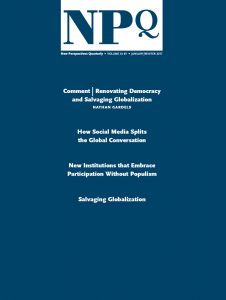Five reasons why grad students should start a blog

The PhD Thesis. The most labour-intensive doorstop imaginable.
It seems rather presumptuous of me to give advice on blogging. I am hardly a power-blogging Pulitzer-prize winning writer and journalist. No-one describes me as a ‘commentator’, my posts don’t go viral, my number of twitter followers is not quite up there with Stephen Fry, by a factor of about er… forty five thousand. But that’s not why I do this, and that’s not why I’ve been blogging for Sociology Lens for well over a year now. There’s a lot to be said about blogging and how it can both complement and supplement the ‘day-job’ of being a PhD student.
- It’s a welcome distraction
Sometimes – for example, when I have to remember what a linear regression is – my PhD is a chore. At other times – say, when I’m transcribing interviews – it’s a bore. Sometimes I feel that I am making precisely no progress. Writing my blog is something quite different, and the strictures of trying to make it short and snappy can be strangely liberating. When your own research topic is getting a bit samey, there is freedom in blogging to write about different topics, inspired by the ‘real world’ of the news, everyday observations, or stuff you’ve read or heard that just makes you think. Sometimes my blogs are related to my research (on air travel, nudging, and carbon offsetting – thanks for asking), but more often than not, they aren’t, and for me, that’s a good thing. Your PhD topic might be really important and interesting, but there’s a big bad world out there. Occasionally thinking and writing about something a bit different has to be healthy, and you can start to make mental links between topics as well.
- It can improve your writing and research skills
This is not guaranteed but, personally, I’m sure that even if I’m no more of an accomplished writer now, after a year of blogging, then I am certainly a more confident one. Which is perhaps not a great combination. But anyway… There are also certain skills which blogging has definitely helped me develop. ‘Transferable skills’ (I hate that term, but yeah…) such as writing to a word limit; meeting deadlines (Sociology Lens writers generally post every fortnight); hyperlinking (good old ctrl+K!); quickly finding useful and reliable facts, figures and pictures – all these things will come in handy whatever you do after your studies are over.
- People can learn from blogs – even the bloggers themselves
How many people read blogs?
Hmm…that’s a difficult question to answer, so here’s an easier one: How many people read PhD theses?
Exactly.
Blogs are infinitely more accessible and digestible. Readers can actually become more informed, blogs can start online conversations and debates, and you might even make someone change their opinions or think about a topic in a new way. I also find that the writing process helps my thoughts coalesce into some kind of shape. In the online world of information overload, received ‘wisdom’, short attention spans, and the endless consumption of other people opinions, blogging helps me realise what I actually think.
- It’s a source of immediate gratification
I once heard Phil Cowley, politics professor, blogger and occasional BBC radio contributor, give a talk on blogging. He said that writing a PhD is perhaps the biggest exercise in delayed gratification anyone ever undertakes. It takes years and years, and you don’t get any real credit until it’s done. Blogging is almost the complete opposite. You can write and upload a blog in an hour or two (although I’ll admit that some articles come much more quickly than others), and you get an immediate sense of accomplishing something. It might not be a unique and sophisticated contribution to scientific knowledge, but it’s yours and it’s out there.
- It can be a way of networking, without the bullshit
Writing blogs can actually connect you with useful people, without having to ‘work the room’, or nod and smile til your face hurts. Some blogs I’ve written have been picked up by researchers or practitioners in my topic area – usually via twitter tags – and then re-tweeted along. Some of my posts have been linked-to by academics whom I have never met (and maybe never will) in foreign countries, which feels pretty amazing when it happens. And as well as feeling smug and important for a few minutes, sometimes there are practical benefits too. A couple of my articles have helped me grab the attention of certain people whom I have then struck up a relationship with. One particularly well-respected professor read a blog I wrote about one of his books, he then re-tweeted a link to it, and we have since exchanged emails and he’s agreed to come and give a talk at my Uni. None of that would have happened without blogging.
My Pulitzer prize might be a little way off yet, but I can live with that. I am happy with my little corner of Sociology Lens, and there are plenty of sites like this (which aren’t quite as good, of course) which you can join if you don’t want to start your own website. I know that blogging isn’t for everyone, but if you’re half-inclined to do it, then DO IT.



1754-9469/asset/society_affiliation_image.gif?v=1&s=9197a1a6ba8c381665ecbf311eae8aca348fe8aa)
1099-0860/asset/NCB_logo.gif?v=1&s=40edfd0d901b2daf894ae7a3b2371eabd628edef)